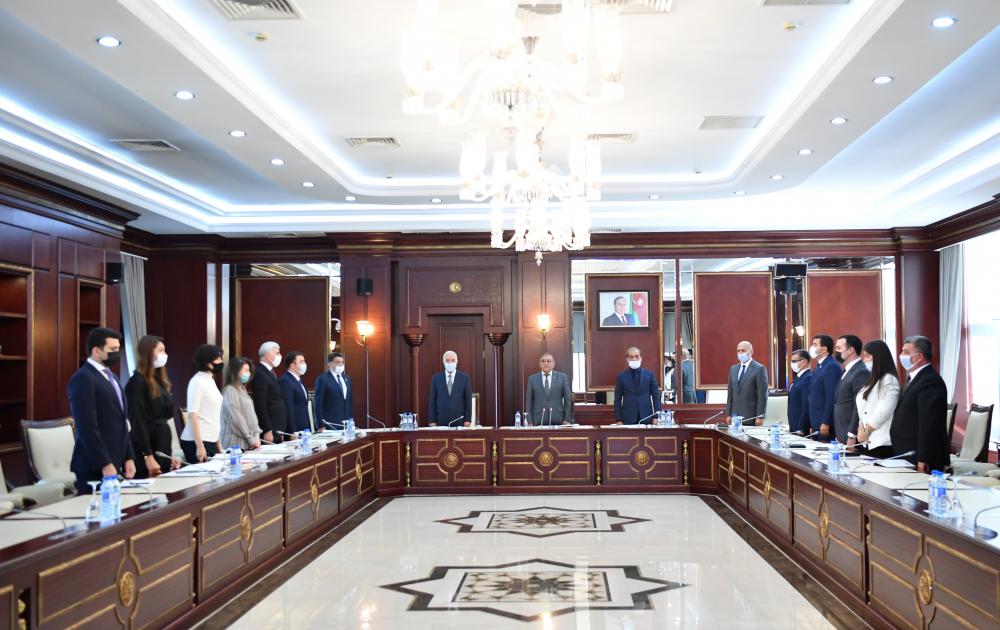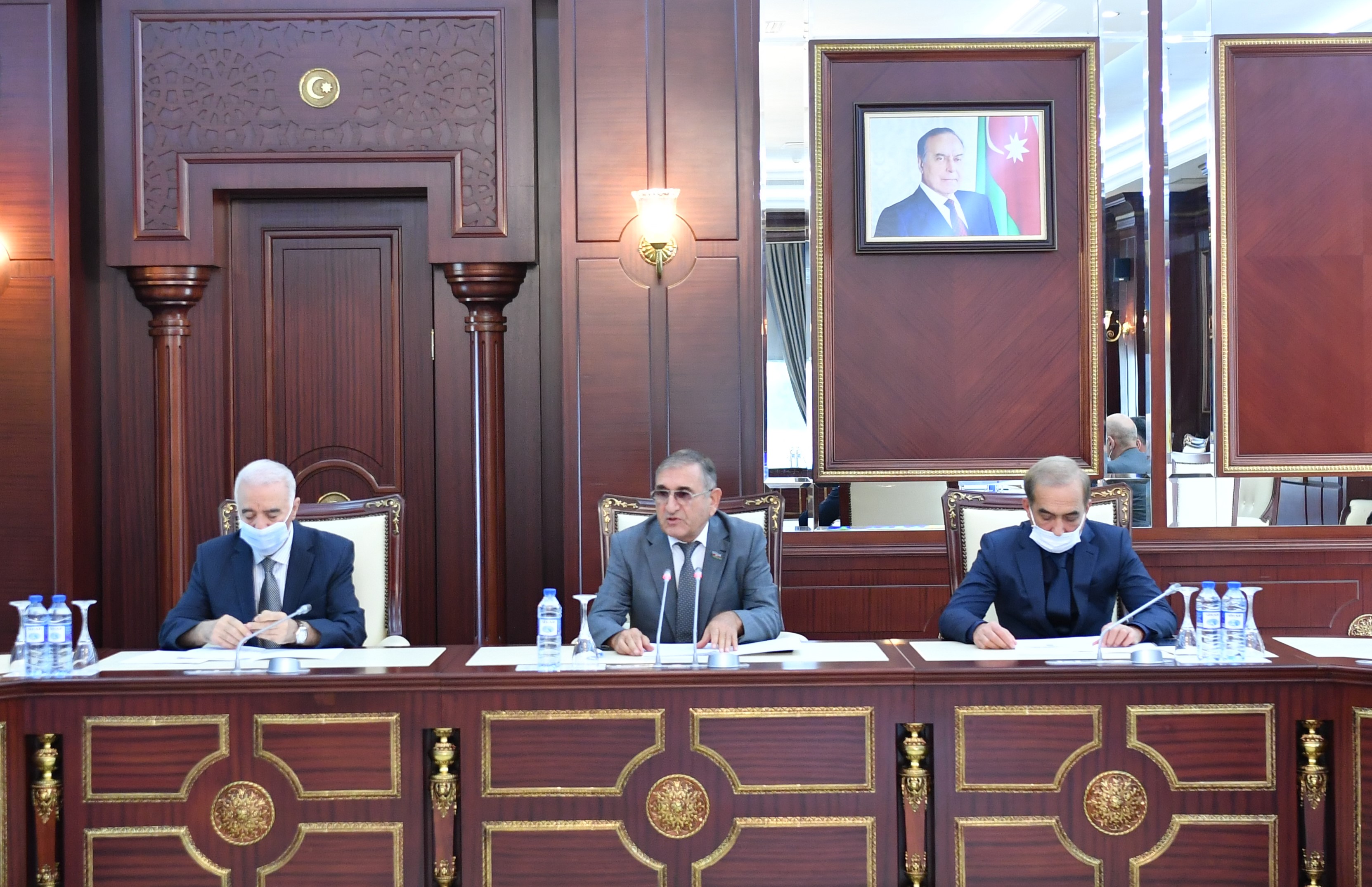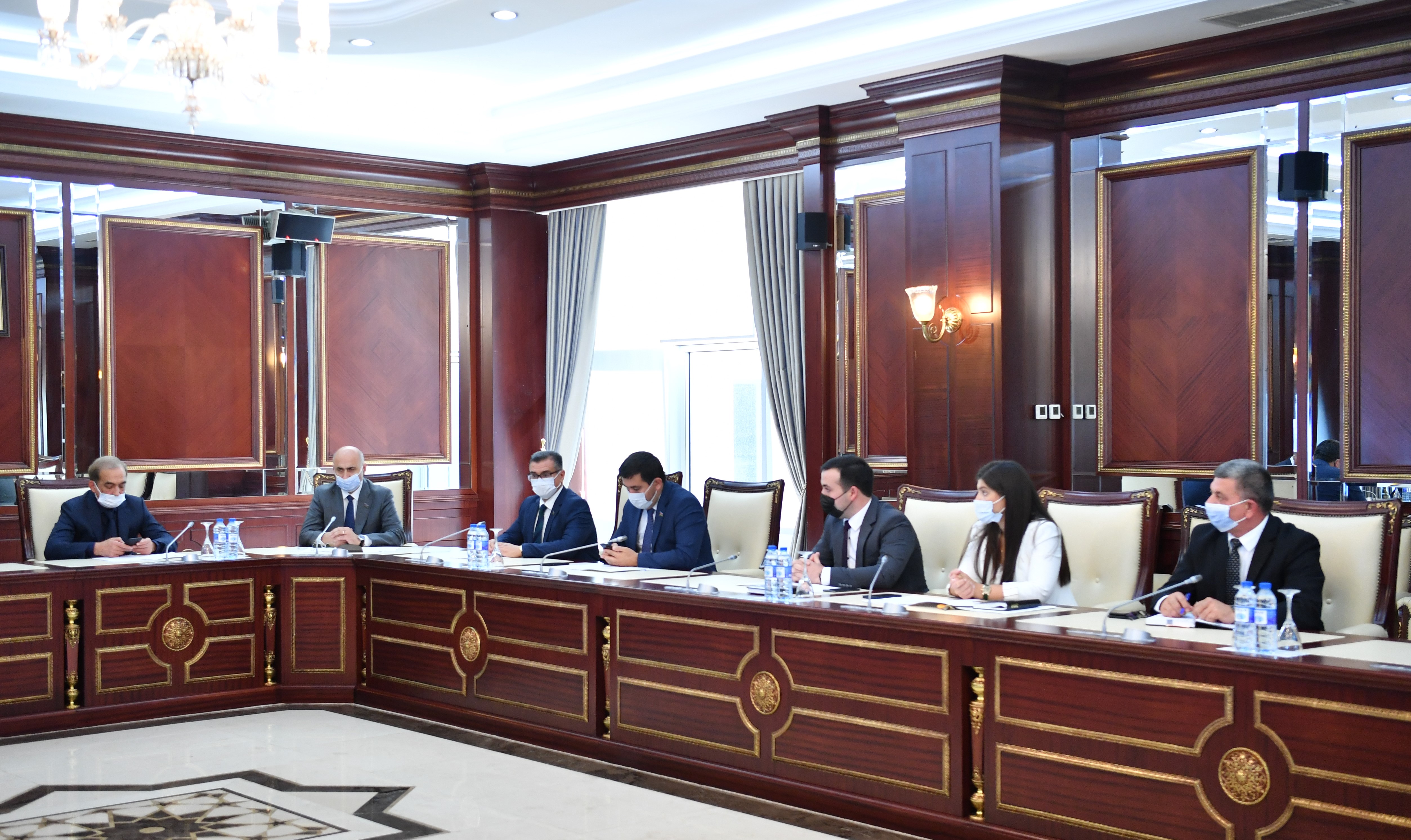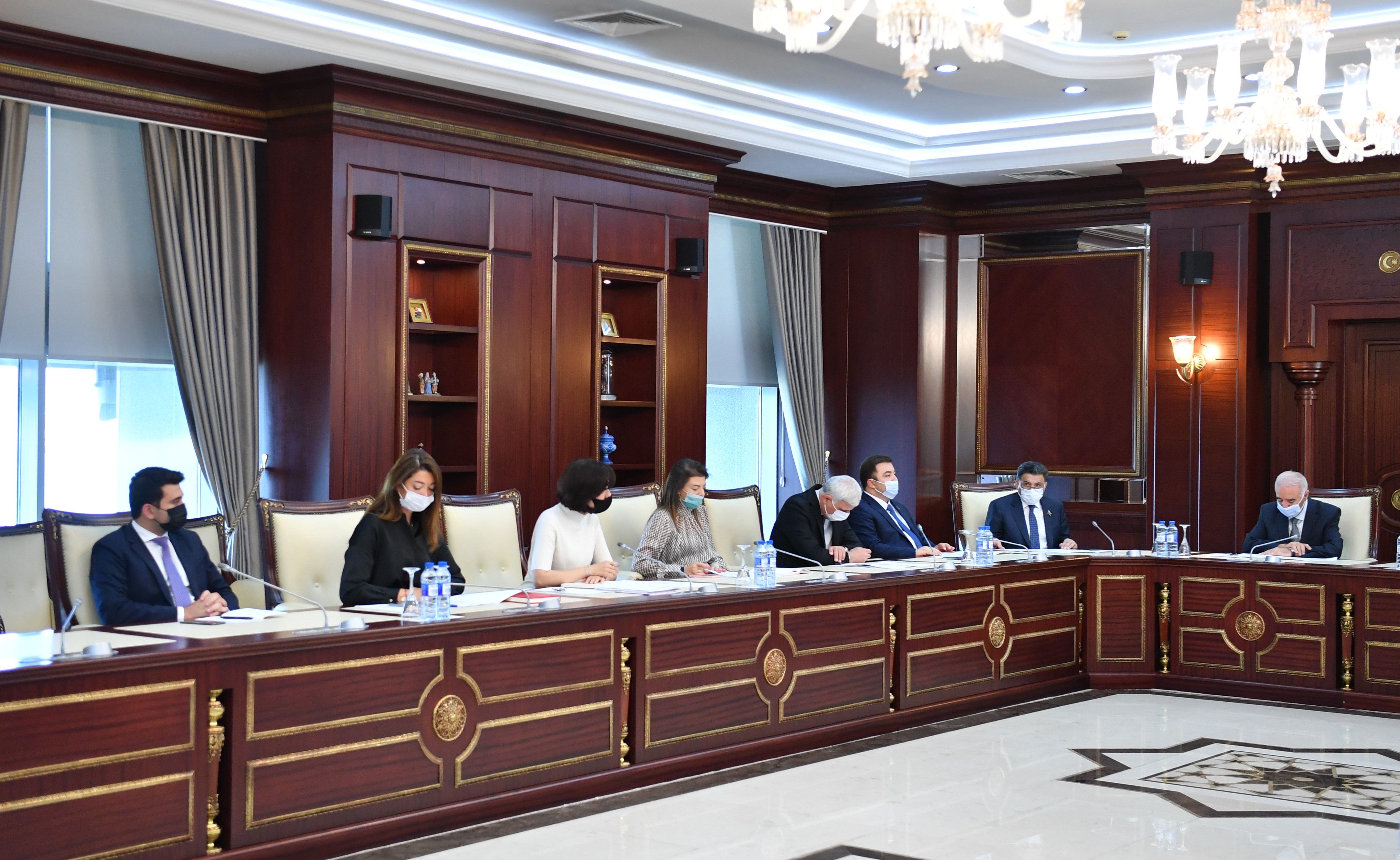Agrarian Policy Committee Held First Meeting in Autumn Session

The Milli Majlis Committee for Agrarian Policy held its first committee in the 2022 parliamentary autumn session on 15 September.
The committee chairman Tahir Rzayev mentioned the latest Armenian provocation against Azerbaijan, wishing that the heroes fallen in the clash rest in peace, their families have endurance and the wounded servicemen recover soon.
The fallen’s memory was honoured with a minute of silence.
After that, Mr Rzayev presented the agenda of the committee meeting consisting of 9 items with the first two being the committee’s performance account of the 2022 spring and extraordinary sessions and the work plan for the autumn session of this year.
According to the report, there had been 11 committee meetings to discuss 12 matters including 10 about various Bills. Commenting on which, Mr Rzayev chose to highlight the significance of the Food Security Law.
Further, the committee members had been active at the period’s parliamentary plena, in discussions about the Bills submitted for consideration of their entity as well as with regards to issues of the agrarian sector’s growth and various socio-political matters. Besides, they had kept in touch with their electors, shahid families and gazies, and had taken a hands-on approach to solving the problems of those people.
Mr Rzayev mentioned the 69 letters, proposals, applications and complaints received in the report period, adding that the whole inbound correspondence had been scrutinised before the committee had taken action to address the issues raised in it.
The Agrarian Policy Committee had joined forces with the Economic Policy, Industries and Enterprising Committee to hold a hearing on the introduction of a new subsidising mechanism in the agrarian sector. Together with the Regional Affairs Committee they had arranged a hearing The Garabagh and East Zangazur Economic Regions as a New Destination for Regional, Socio-Economic and Agrarian Development.
As for the work plan, it was said about it that, apart from mulling over the Bills due to arrive before the committee, they would also discuss the topmost agrarian industry development matters in general.
The committee chairman moved on to the 3rd item on the agenda being a draft law to approve the Azerbaijani-Uzbek inter-governmental agreement about co-operation in plants quarantine and protection. The goals set there were to protect both national territories from harmful organisms’ invasions as well as to facilitate a growth in the two-way produce turnovers.
Item 4 was about a draft law to approve the memorandum of understanding between the Food Security Agency of Azerbaijan and Lithuania’s Food and Veterinary Service about co-operation in food security. The memorandum had been signed not only to have the Azerbaijani-Lithuanian interaction in this area but also to ensure its eventual progress, Mr Rzayev pointed out.
Item 5 was a set of amendments (in the first reading) to the laws ‘On Affirmation of the Regulations of Conversion of State Enterprises to Joint-Stock Companies’, ‘On Financial and Administrative Groups’ and ‘On the Land Rent’. Those are unifying amendments; they have to do with the incorporation of the Ministry of Taxes, the State Property Issues Committee and the State Anti-Monopoly and Consumer Market Control Agency into the system of the Ministry of Economy. Besides, Article 5 of the Land Rent Law is going to have the existing formulation ‘where state enterprises, departments and organisations are situated’ replaced with a more encompassing wording ‘in use by the state legal entities’.
The Items 6 and 7 dealt with the separate sets of first-reading amendments to the State Duty Law and the Veterinary Law, both drawn up in connexion with the cancelation of the state duty for the veterinary certificates required for transit of veterinary cargoes across urban and provincial territories.
And the last two agenda items were the first-reading Bills containing amendments to the Selection Achievements Law and the Land Rent Law. Both are made on the force of Paragraph 4.2 of the 2020-2022 National Work Plan to Promote the Open Government (approved with the presidential decree dated 27 February 2020), being intended to streamline the e-serving of citizens whilst also minimising the amounts of documents requested from citizens using the e-services.
Comments and remarks came from the deputy committee chairman Sabir Hajiyev and the member-MPs Eldar Ibrahimov, Aydin Huseynov, Azer Badamov, Emin Hajiyev and Mushfig Jafarov. They said the Bills would make it easier for citizens to submit documents and certificates as well as they would foster a functional advancement of the Electronic State Information System. As regards the committee performance report and action plan, both were found to be acceptable. It was then recommended that the Bills discussed at the meeting should be brought before a plenum of the Milli Majlis.
MP Novruzali Aslanov and other officials took part in the meeting of the Agrarian Policy Committee as well.
The Press and Public Relations Department
The Milli Majlis






